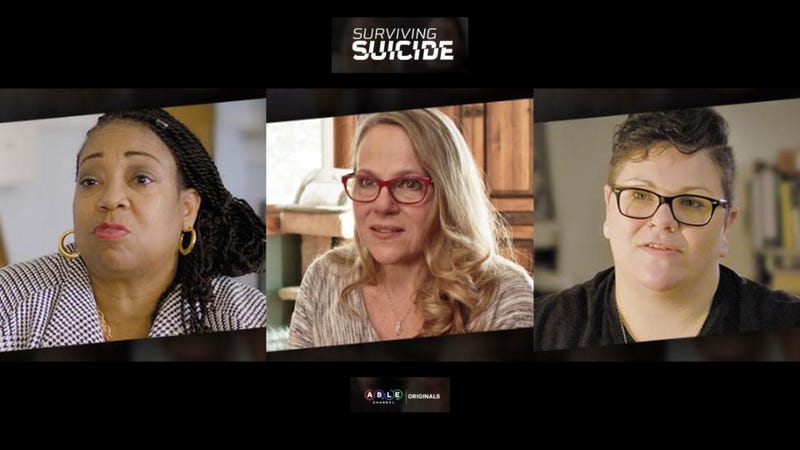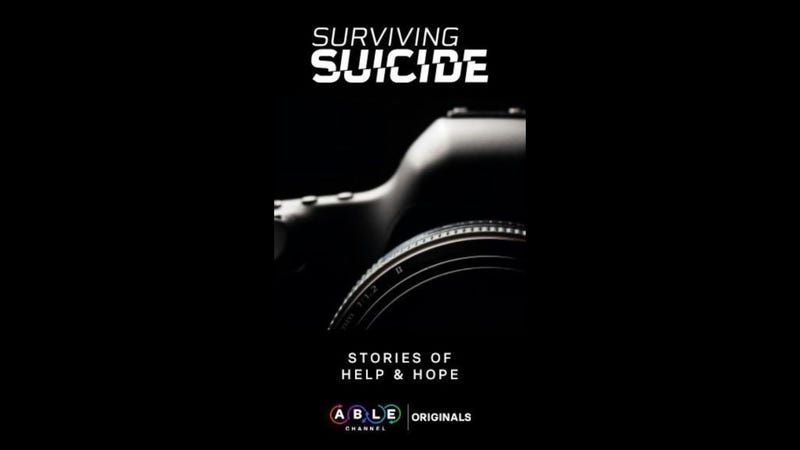
NEW YORK (1010 WINS/ WCBS 880 NEWS) – The holiday season, though not linked to higher suicide rates, is an important time to recognize and support those struggling with mental health issues, according to interviews with survivors featured in the docuseries "Surviving Suicide."
Growing up, mental health wasn't a topic of discussion in Nancy Williams-Nettles’ home, and it wasn't until she faced her own struggles with suicide attempts in the 90s that she began to educate herself about it.
Nettles, currently the director of accessibility at Goucher College, first attempted suicide on her birthday in 1996. She was found by her daughter, who called 911. Following this, Nancy spent time in a psychiatric hospital, yet still faced numerous challenges, including homelessness and joblessness.
After a third attempt in which she ended up in a coma, Nancy decided to confront the traumas in her life, including her sister's death, and her own experience with sexual assault.
“I think the only reason I didn't try a fourth time was because I had a great deal of mental health professional intervention,” Nettles said. "I knew my parents loved me, but the biggest thing, honestly, was I had a lot of professional mental health professionals who were compassionate and showed me empathy.”
Last year, the U.S. saw its highest suicide rate in more than 80 years, with about 50,000 people dying by suicide, 3% more than in 2021, according to the Centers for Disease Control and Prevention's National Center for Health Statistics.
Nettles was featured in "Surviving Suicide," a series by The Able Channel, which includes interviews with people discussing their reasons for attempting suicide and their journey to recovery afterward.
“If I didn't share my story with whoever would listen, even if I only touched one person that made them think twice about hurting themselves or others, then I've done my duty as a human being," Nettles said. “I think sharing my story is very cathartic.”
While suicide rates peak in spring and summer and decrease during the winter, according to the CDC, a National Alliance on Mental Illness (NAMI) survey found that 64% of people with mental illness report worse symptoms during the holidays. Factors such as separation from loved ones, grief, gift-giving stress, financial struggles, challenging family interactions, and shorter days contribute to making the holiday season a difficult time for mental health.
The show also featured mental health experts like Sally Spencer-Thomas, a psychologist and president of United Suicide Survivors International, who is also a suicide loss survivor.
Thomas joined the show to offer her viewpoint as a mental health professional deeply affected by personal experience. Her brother Carson's suicide nearly twenty years ago left a mark on both her personal and professional life.
“Sharing my story helped me make meaning from my brother's death,” Thomas said. “While I can't get him back, I can live my life with intention. I can strive for the purpose of preventing what happened to him from happening to others.”
Thomas offered advice for those struggling with loneliness during the holidays.
"First, I recommend that people spend time with empathetic individuals who uplift them,” she said. “Second, engaging in community volunteer work can be beneficial, as helping others often provides perspective and a sense of fulfillment. Finally, I encourage people to engage in outdoor activities. Whether it's hiking, sledding, or wood chopping, just twenty minutes in nature can significantly improve your mood."
"Surviving Suicide" was named a finalist in the Health programming category for an Anthem Award, previously awarded to notable figures such as Oprah and the Dalai Lama.

Brian J. McCourt, the founder of Able Channel, created the series, a project he describes as his "brain child," inspired by his sister-in-law's suicide 25 years ago. He recognized that despite its profound impact, suicide was a topic frequently overlooked in public discourse and media coverage.
“I wanted to explore the subject because people don't talk about it,” McCourt said. “We started producing the program in 2019, and we were told at the time, don't touch the subject. And of course, we went ahead and did it."
"We've got to be able to provide services that people can reach out to and seek the treatment that's available because it does work, but it has to be accessed,” McCourt said.
Another survivor featured was Dese'Rae Stage' who shared her journey from being a suicide survivor to becoming a therapist and creating "Live Through This," a series of portraits and true stories of suicide attempt survivors, which stems from her desire to help others.
Her battle with suicidal thoughts began in her teens and continued into adulthood. She explained "My first suicide attempt was in the late nineties. My most recent suicide attempt was in 2021." The turning point for her has often been her children, as she expressed, "Now, more than anything else, it’s my kids that keep me tethered to this life."
"It's important to me to share my story so that others don't feel quite as alone," Stage said.
If you or someone you know may be experiencing a mental health crisis or contemplating suicide, call or text 988. In emergencies, call 911, or seek care from a local hospital or mental health provider.
